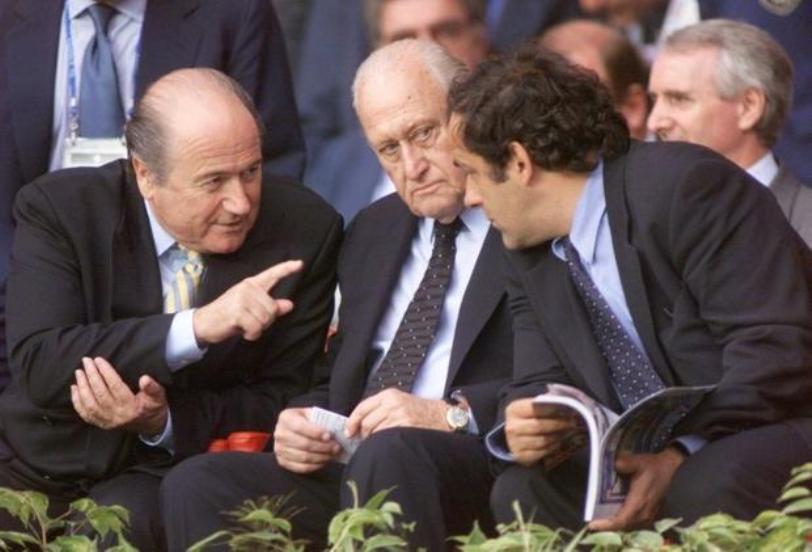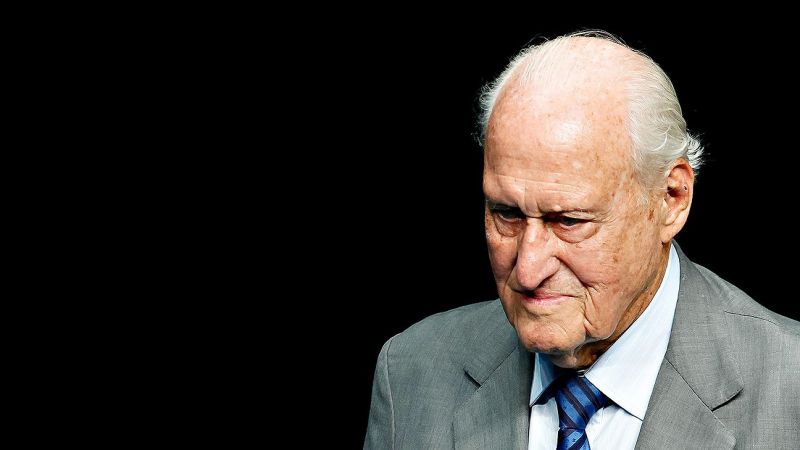
Joao Havelange, who has died at 100, was the man who made FIFA a global powerhouse, only to resign under a cloud of corruption that has darkened the world footballing body’s reputation.
His death was confirmed Tuesday by the Samaritano Hospital in Rio de Janeiro. He had been treated there as recently as July for pneumonia.
As head of FIFA for 24 years and with half a century on the International Olympic Committee (IOC), Havelange thought and acted big, becoming a central figure in the evolution of today’s sporting mega-events.
Among his last achievements was to use his clout to help Rio win its bid to host this year’s Olympic Games — the first held in South America.
Havelange “sees the world through a telescope and not through a microscope,” former US secretary of state Henry Kissinger said.
Born to a wealthy Belgian immigrant family in Rio de Janeiro in 1916, Jean-Marie Faustin Goedefroid de Havelange graduated with a law degree, but sport was his true love.
He represented Brazil in swimming at the 1936 Olympic Games in Berlin and again in Helsinki in 1952, where he was on the water polo team.
His real calling turned out to be in management where he rose to the top echelons of sporting bodies, setting a standard for the kind of lengthy — and deeply entrenched — reigns that some critics blame for fostering a culture of corruption.
Havelange was president of the Brazilian SportsConfederation for 15 years and joined the Brazilian Olympic Committee in 1955, then the IOC in 1963 where he would remain until 2011.
In 1974 he got the job of FIFA president, succeeding Sir Stanley Rous as the first non-European in the role. Over the next quarter century Havelange would change the way the world experienced football.
– Global game –
Under Havelange the World Cup expanded from a 16-nation event focused on Europe and a few South American sides to the planet-wide sporting festival it has become.
By the time Havelange handed over the FIFA reins to Sepp Blatter in 1998, the number of competing nations had doubled to 32, with 12 coming from Asia, Africa or the CONCACAF region for North and Central America and the Caribbean.
He also oversaw FIFA’s inauguration of the Under-17 World Cup, the World Youth Cup, the Women’s World Cup, the Indoor World Cup and also introduced the Confederations’ Cup, played between continental champions.
“I did not become president of FIFA just to watch good football and applaud,” Havelange said just before making way for Blatter.
– Money games –
Havelange neither drank nor smoked and met with Pope John Paul II on no less than three occasions. However, there was a less savory side to the clean-living sports powerbroker.
Amid swirling allegations of corruption, Havelange resigned from the IOC in December 2011. Officially he left for health reasons, but his departure was two days before he was due to face an ethics investigation into allegations he had taken bribes to funnel contracts to a marketing company called ISL.
In 2013, Havelange resigned as honorary president of FIFA after confirmation of reports that he had taken bribes.
Critics say that corruption was as much Havelange’s legacy as the successful internationalization of football. His successor Blatter would himself announce his resignation in June 2015 after a massive corruption probe led to the arrests of seven top FIFA officials.
Havelange still casts a long shadow over internationalsport.
Athletes competing in the Rio Games race in a stadium which — despite complaints from some quarters — still bears the name: Joao Havelange Olympic Stadium. – Agence France-Presse

































